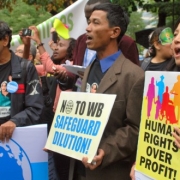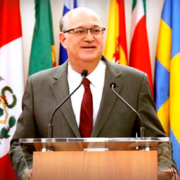The V Regional Forum on Business and Human Rights for Latin America and the Caribbean was held
The V Regional Forum on Business and Human Rights in Latin America and the Caribbean, which was held virtually on this occasion, focused mainly on the vulnerabilities that were deepened by the current situation of the COVID-19 pandemic in the region.
“Below, we offer a google translate version of the original article in Spanish. This translation may not be accurate but serves as a general presentation of the article. For more accurate information, please switch to the Spanish version of the website. In addition, feel free to directly contact in English the person mentioned at the bottom of this article with regards to this topic”.



